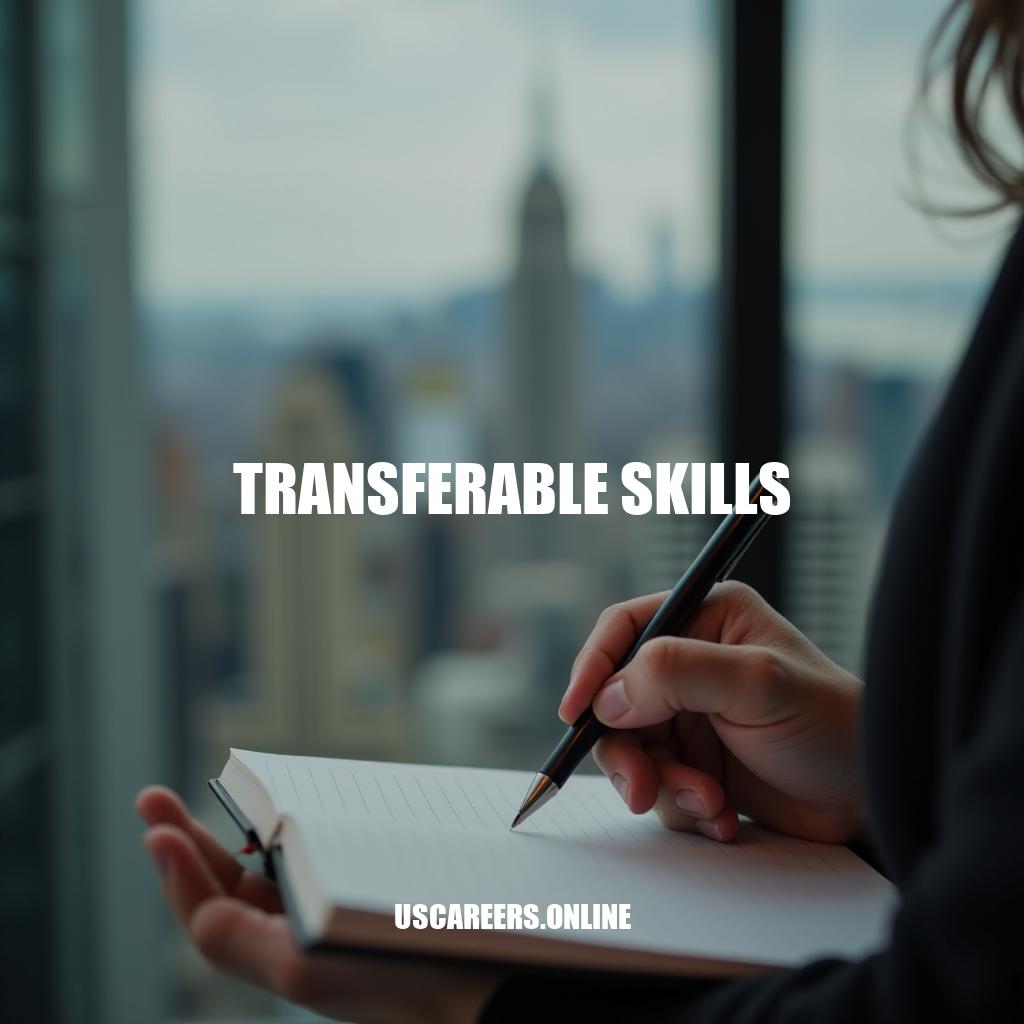
Transferable skills are abilities and knowledge that can be applied across various jobs and industries, making them highly valuable in the workforce. These include critical thinking, communication, teamwork, problem-solving, and adaptability. Employers seek these skills because they indicate a candidate’s ability to perform well in different roles and environments.
They are essential for career growth and can help individuals navigate changes in the job market, ensuring long-term employability and success.
Identifying Transferable Skills
Self-assessment involves recalling significant achievements and milestones. Identify specific tasks, projects, or roles that were particularly challenging or rewarding. This will illuminate areas where skills were honed.
Next, compare these experiences to a list of common transferable skills, such as communication, problem-solving, teamwork, and leadership. Reflect on how these skills were applied in different contexts. Finally, solicit feedback from colleagues, mentors, and supervisors to provide an external perspective on your strengths and transferable skills.
Combining self-reflection with external feedback offers a comprehensive understanding of your abilities.
Examples of Transferable Skills
Communication skills involve articulating ideas clearly and effectively. This includes active listening, interpreting non-verbal cues, and being concise. Good communicators facilitate understanding and foster open dialogue, which is essential in any professional setting.
Teamwork skills entail collaboration and the ability to work harmoniously within a group.
This means recognizing and utilizing the strengths of team members, managing conflicts amicably, and contributing to collective goals. A strong team player enhances group performance and ensures that tasks are completed efficiently.
Problem-solving skills involve analyzing issues, identifying root causes, and devising effective solutions. This requires logical thinking, creativity, and perseverance.
Individuals who excel in problem-solving can tackle challenges head-on, adapt to changing circumstances, and implement innovative solutions, which is invaluable in any job.
Developing Transferable Skills
Start with a thorough self-assessment to identify your strengths and weaknesses. Once you know where you stand, tailor your learning approach accordingly.
For education, take advantage of online courses and certifications. Platforms like Coursera and LinkedIn Learning offer a variety of courses that can help you acquire new skills.
Look for programs that offer both theoretical knowledge and practical exercises.
In terms of training, find opportunities for hands-on experience. Internships, volunteer work, and part-time jobs in fields related to your desired skill set can offer invaluable experience. Look for projects that challenge you to apply what you’ve learned in a real-world context.
For practical application, consider working on personal projects that showcase your skills.
Whether it’s coding, design, or writing, creating a portfolio of your work can demonstrate your abilities to potential employers. Networking can also play a crucial role; attend industry events, join professional groups, and connect with experts in your field to get insights and advice.
Use a mix of formal education, practical experiences, and personal projects to continuously refine your skill set. Evaluate your progress regularly and be open to feedback to make ongoing improvements.
Transferable skills are honed through a combination of varied learning methods and consistent, real-world application.
Applying Transferable Skills
Focus on clear and concrete examples: For each skill you want to highlight, provide specific instances from previous roles or projects where you utilized this skill. Show results or outcomes to demonstrate the impact of your actions.
Tailor to the job description: Match your transferable skills with the requirements and responsibilities listed in the job posting. This makes it easier for the hiring manager to see your fit for the role.
Use the STAR method in interviews: Structure your answers by describing the Situation, Task, Action, and Result.
This method helps you narrate your experience in a clear and compelling way.
Show learning agility: Emphasize your ability to quickly adapt to new situations and learn new skills. Use examples where you successfully transitioned into a new role or industry.
Quantify your achievements: Whenever possible, use numbers to showcase your achievements. This gives concrete evidence of your skills’ effectiveness.
Focus on relevant skills: Identify which of your transferable skills are most relevant to the job you are applying for and put more emphasis on those.
Leave out or downplay skills that are less relevant.
Network and get recommendations: Connections and recommendations can also highlight your transferable skills. A good word from someone in the industry can reinforce the skills you list in your application.
Get some practice: Doing mock interviews can help you become more confident in explaining how your past experiences and skills can benefit the new role. Practice with a friend or in front of a mirror.
Transferable Skills: The Key to Career Growth
Transferable skills are essential for career growth, long-term employability, and success in various jobs and industries. They include critical thinking, communication, teamwork, problem-solving, and adaptability. Employers seek these skills as they indicate a candidate’s ability to perform well in different roles and environments.
Identifying Transferable Skills
To identify transferable skills, conduct self-assessment by recalling significant achievements and milestones. Compare these experiences with common transferable skills such as communication, problem-solving, teamwork, and leadership. Solicit feedback from colleagues, mentors, and supervisors for an external perspective on your strengths and transferable skills.
Key Transferable Skills
- Communication: articulating ideas clearly and effectively
- Teamwork: collaboration and working harmoniously within a group
- Problem-solving: analyzing issues, identifying root causes, and devising effective solutions
Developing Transferable Skills
To develop transferable skills, combine self-reflection with external feedback. Utilize online courses and certifications to acquire new skills, such as those offered by Coursera and LinkedIn Learning. Seek hands-on experience through internships, volunteer work, or part-time jobs in fields related to your desired skill set.
Practical Application
Create a portfolio of your work that showcases your skills. Network with industry experts and attend events to gain insights and advice. Continuously refine your skill set by evaluating progress regularly and being open to feedback.
Highlighting Transferable Skills in Job Applications and Interviews
- Focusing on clear and concrete examples
- Tailoring to the job description
- Using the STAR method
- Showcasing learning agility
- Quantifying achievements
- Emphasizing relevant skills


